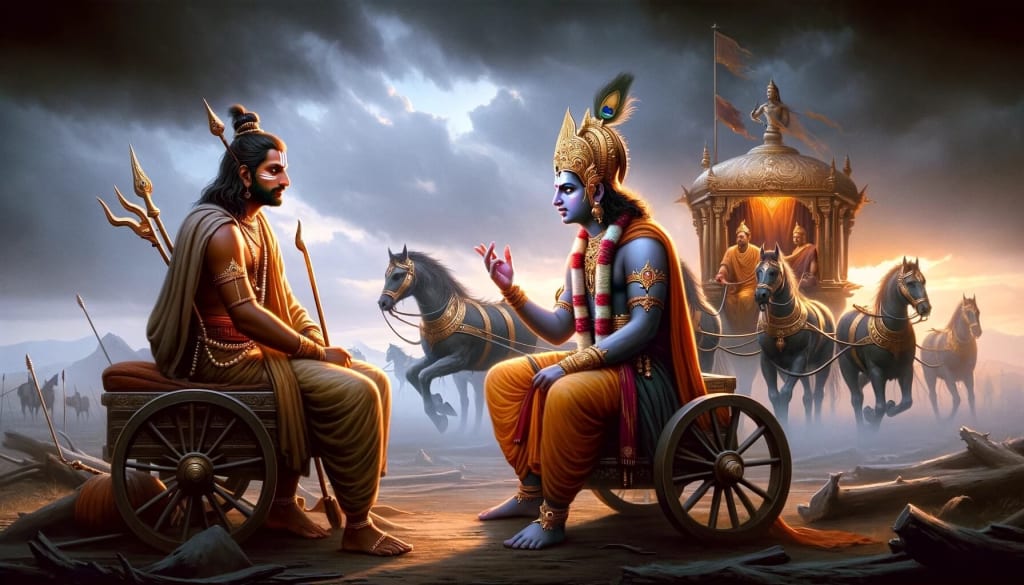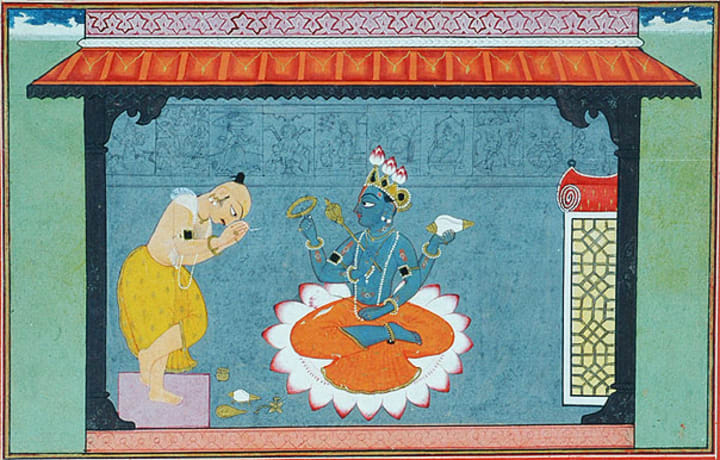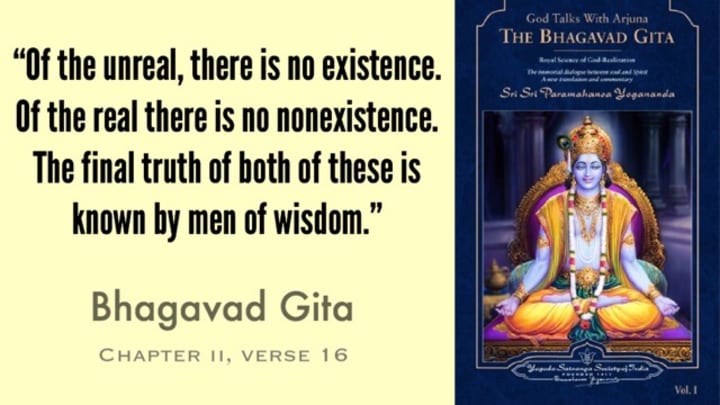Who Wrote Bhagavad Gita? What is Bhagavad Gita?How to Read Bhagavad Gita?
Do you want to know who wrote the Bhagavad Gita, the ancient Hindu scripture that is revered for its profound teachings? Learn about the details of Bhagavad Gita.

Who wrote the Bhagavad Gita?
According to Hindu scriptures, the Bhagavad Gita was authored by Lord Ganesha, who received the teachings from the sage Veda Vyasa. The Bhagavad Gita enlightens the readers about various Hindu philosophical concepts of life. The teachings include Dharma, Bhakti Yoga, Karma Yoga, Raja Yoga, and Jnana Yoga, while also incorporating various elements of Samkhya Yoga philosophy. It is revered as one of Hinduism's most sacred scriptures, and holds significant influence across Hindu tradition. The Bhagavad Gita also occupied a central role in the vaishnava tradition (a sect of Hinduism where Lord Vishnu is revered by the devotees), and it also formed part of the prasthantrayi. Bhagavad gita has been extensively commented upon by the various sages, Hindu saints, and philosophers with differing interpretations regarding its fundamental teachings and significance.

What Is Bhagavad Gita?
Often simply referred to as the Gita, the Bhagavad Gita is a Hindu scripture consisting of 700 verses and forms part of the great epic called the Mahabharata. It specifically forms chapters 23–40 of Bhishma Parva of the Mahabharata. If you want to know the time frame in which it was composed, you are going to get confused. But it is believed that the text was composed in the second half of the first millennium BCE. But when you deep dive into the philosophy and try to learn more about the subject matter of the Bhagavad Gita, you will be amazed to learn that it might be possible that the text can be older more than 5000 years.
The background of the Bhagavad Gita is a battleground of Kurukshetra War. The Gits unfolds in front of readers as a dialogue between the Pandava prince Arjuna and his charioteer Lord Krishna, who is himself an incarnation of Lord Vishnu, the creator of universe. Like we face in the real life, Arjuna when faced with the impending war and moral dilemmas, sought for Lord Krishna's guidance. Lord Krishna advised him to fulfill his duty as a warrior and uphold dharma or righteousness.
The conversations between Lord Krishna and Arjuna covers a wide range of spiritual and philosophical topics, extending beyond the immediate context of the war. The battleground was not just a simple war zone rather the setting is often seen as symbol of the challenges and conflicts inherent in human life.
The Gita presents many lessons from Upanishads. Concepts like individual self (Atman) and the supreme self (Brahman), and suggesting their presence within each being. Some renowned scholars, philosophers, and Hindu sages interpret it as a metaphorical conversation between the human self and the divine. Hinduism incorporates different schools of Vedanta, which is nothing but different philosophical approaches. Each school of Vedanta offer varying interpretations of the relationship between Atman and Brahman, ranging from non-dualism to qualified non-dualism and complete dualism.

How many slokas (verses) are there in Bhagavad Gita?
The Bhagavad Gita contains 700 shlokas in 18 chapters.
Out of which 574 shlokas had been spoken by Lord Krishna
84 shlokas had been spoken by Arjun
41 shlokas had been spoken by Sanjay
01 shlokas had been spoken by Dhritrashtra

How to read Bhagavad Gita?
There are no specific rules or restrictions for reading the Bhagavad Gita. But those who have read it, recommend that it is crucial to approach the Bhagavad Gita with full concentration for better understanding. Here are some tips that you should keep in mind while reading:
1. When you start reading the Bhagavad Gita, you should approach it with an open mind and free from any preconceived notions or preconceptions regarding any spiritual aspects.
2. Arjuna himself surrendered to Lord Krishna for guidance. Finally at the end, Lord Krishna asked him whether he had attentively listened or not. So, adopt a mindset of attentive listening similar to Arjuna's receptiveness.
3. Avoid reading Bhagavad Gita after meals which can prevent you from understanding the core concepts of Bhagavad Gita and can also induce drowsiness.
4. Will Smith even acknowledged in one interview that he read Bhagavad Gita multiple times but still he thinks that he couldn't understand all the learnings which the Gita commands. So, surrender yourself to Lord Krishna and be prepared to read the text multiple times to grasp its profound concepts.
Can I keep Bhagavad Gita at my home?
The Bhagavad Gita was spoken by Lord Shri Krishna who is himself the supreme lord of the universe. He is absolute and so his teachings. Many sages like Shri Ramsukhdas Ji Maharaj devoted his entire life to Bhagavad Gita yet treated it like a ocean of knowledge. That is why it is said that Lord and his teachings has no distinction. Therefore the Bhagavad Gita should be revered in the same manner as Lord Krishna himself as it contains His personal instructions.
When kept at home, the Bhagavad gita should be placed in a clean and respectful location. It can be placed in a house temple if one has such a space, or wrapped in a saffron cloth. But remember to read it daily and not just keeping under saffron cloth. Do not treat it like a decorative item or coffee table book.
Just having the Bhagavad Gita present at your home, creates a positive and auspicious atmosphere even if one doesn't have time to read it regularly. It helps to remove negative energies and provides a sense of safety and protection.





Comments
There are no comments for this story
Be the first to respond and start the conversation.